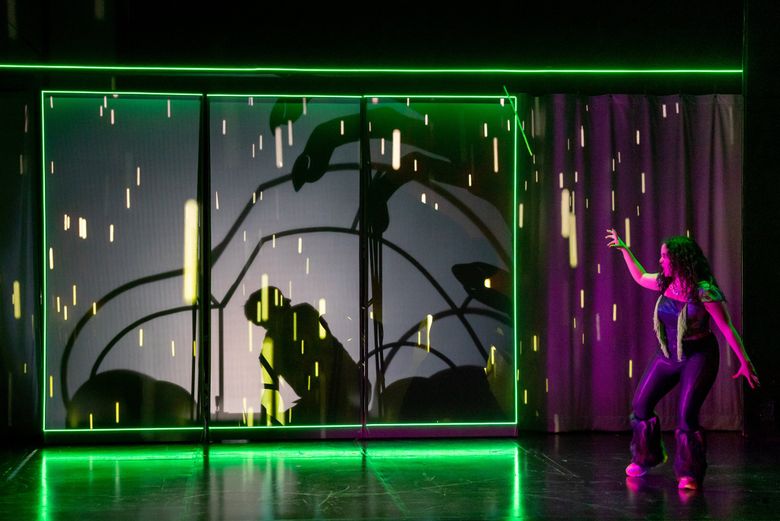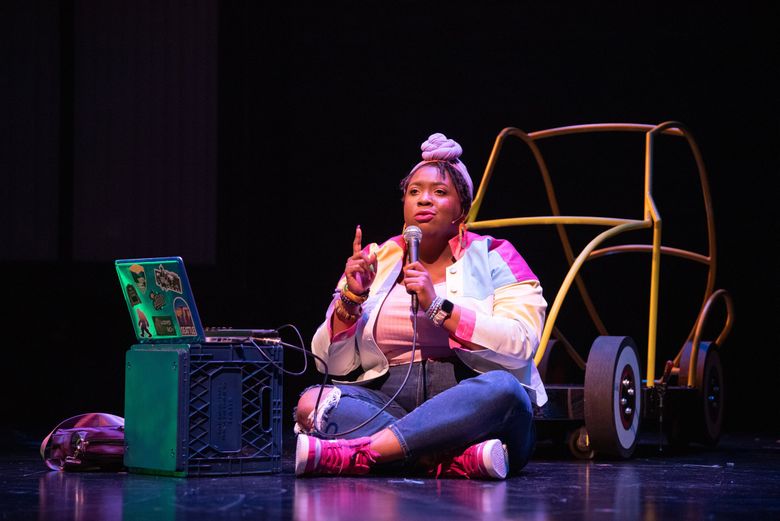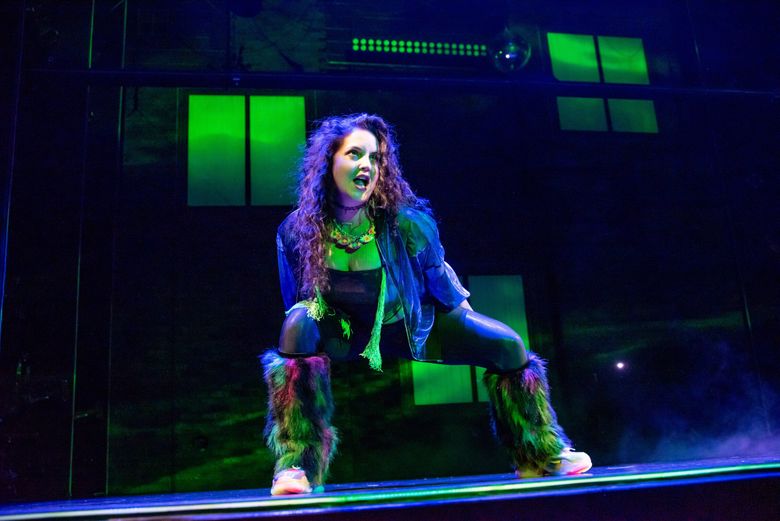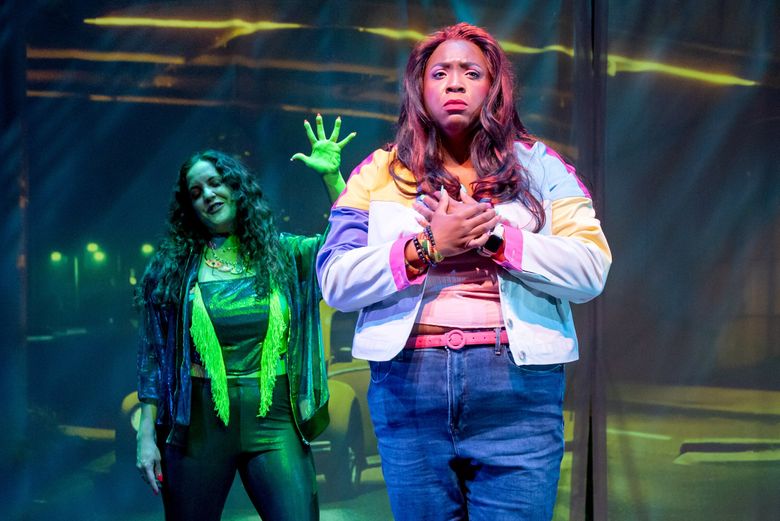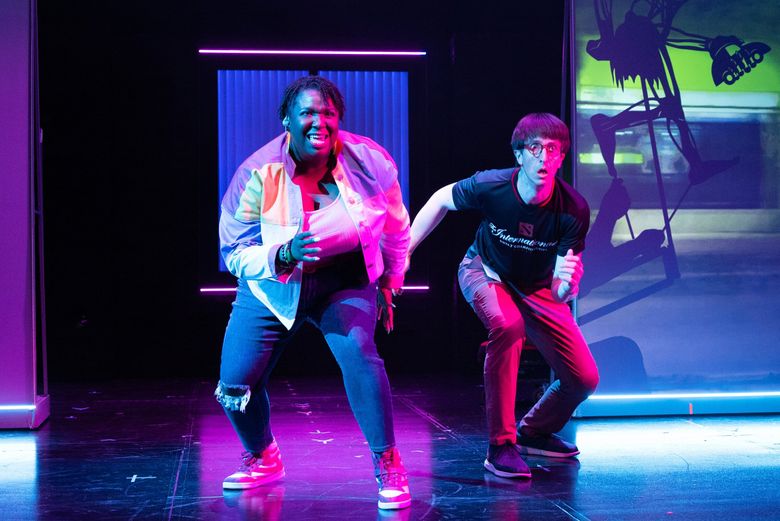By W. Barnett Marcus | May 17, 2023 | for Real Change News
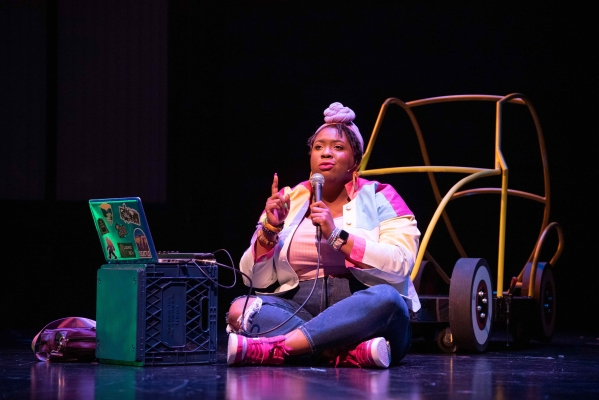
Six years ago, as they were driving me across town on a sunny day, my friend turned to me and asked, “Can I show you this song?” As soon as “A Terrible Ride” from Justin Huertas’ 2015 musical “Lizard Boy” began, the entire soundtrack soon became a staple in my life.
What I didn’t learn until recently is that, six years ago, Huertas began crafting something new. A firebrand of the Seattle-themed musical, Huertas set intersectional stories on the streets of his city’s premiere theaters with “Lizard Boy” and 2019’s “The Last World Octopus Wrestling Champion.” At long last, following a 2020 pandemic-related deferral, “Lydia and the Troll” continues this tradition in full bloom, this time at Seattle Rep and with Huertas joined by music supervisor and producer Steven Tran.
In a captivating opening number performed by Jane (Janet Krupin), a centuries-old myth of the troll emerges: Every 20 years, a troll must elicit a deep truth from a potential new host in order to switch bodies and start the timer over. The mind and soul of the original owner conveniently transfer to the body of an 18-foot-tall troll, the form Jane is trying to avoid retaking. The telling of the myth is layered with a vocoder on Krupin’s voice, an effect which is broadly utilized throughout the show in addition to vocal layering from other cast members out of sight. Mixing human harmony and electronic backing creates a distinct thumbprint for “Lydia” that joins a conversation on incorporating EDM elements to musical theater while thematically supporting Lydia’s (Sarah Russell) aspirations as a music producer.
For a 90-minute performance, I was not sure what to expect from character dynamics and individual arcs, but one beauty of a small cast is that, even in a short time, everyone has room to show their true colors. Pete (Adam Standley), Lydia’s boyfriend, is on the verge of proposing marriage but demonstrates in just the span of a car ride how what appears like love on the outside can be built on codependent harm. All this tension is embellished by the creative implementation of seat adjustment to match the pace and intensity of Pete’s driving. Lydia’s uncertainty in her relationship becomes physically realized and an emotional handhold for Jane to seize.
Condensing and synthesizing Lydia’s and Pete’s relationship dynamic while balancing their individual paths to sobriety from alcohol is made entirely possible through the weight of honesty mandated by Jane, who takes advantage of both of their self-defined weaknesses for her own gain. Without anyone with her best interests at heart by the middle of the show, it’s up to Lydia to take control of her life, her self image and her own heart-wrenching moment of self-healing.
Six years after I first encountered it, rehearsals for “Lizard Boy” began off-Broadway with Prospect Theatre Company for a June run. “Lizard Boy” did some globetrotting since its inception, and, in the buzz of the Rep lobby after the opening night of “Lydia,” I heard the hopes of a repeat.
I wonder how a show like “Lydia” could scale up to audiences not steeped in the ever-present mystery of the Fremont Troll. As someone from the city, a show about a lifelong landmark felt spiritually nourishing; elements of “Lydia” describe Seattle life in ways that deviate from the Starbucks-and-rain clouds homogeneous approach of popular media. Besides location relevance, “Lydia” interrogates anti-Black perspectives that greatly affect artists in Seattle, adding another layer to concepts of Seattle’s political stereotypes while centering the discussion on Black joy first and foremost. Highlighting Black joy on the Seattle stage is a throughline I’ve greatly enjoyed this past year in ACT’s “Choir Boy” and the 5th’s “The Wiz,” now followed by “Lydia.”
There is a hint to the history of the Fremont Troll as we know it hidden in the story of “Lydia and the Troll.” The Fremont Troll was designed initially as hostile architecture in response to homeless residents in 1990 and ’91. When Jane marches into Lydia’s life, she creeps into the space Lydia carved out through music for herself and begins dictating how that space should be presented and used, at times leading to Lydia’s positive self-discovery but at others to her loss of autonomy. Jane comes off as hypnotic, impulsive and incredibly vibrant at all times. Her confidence and dignity keeps the tension of “Lydia” high from the very beginning. Lydia, grounded and patient in comparison, contrasts Jane so much as to expose her insecurities through their differences. It doesn’t take long before Jane interrupts Lydia’s songwriting grind and begins a chain of events that upset Lydia’s creative process and sense of self.
All this talk of the main cast isn’t to underplay in any way the work of the ensemble, Guy Garrison and Sophia Franzella. Having seen Franzella before in Pony World’s “Not/Our Town,” I was thrilled to catch her Rep debut, especially in such emotive physical command of a large mask displayed in shadow. The puppetry work in “Lydia” is by far my favorite design element. Presented in similar fashion to Indonesian wayang kulit — handheld shadow puppets built of intricately cut wood that move on rods and hinges — puppet crafter Garrison’s creative signature gives “Lydia” a seat of its own at the table of puppet-involved shows. When shadow isn’t implemented, the same surfaces hold projections (designed by Bryce Cutler).
Suffice it to say, Justin Huertas has done it again: “Lydia and the Troll,” in its electronic glory, is a must-see this spring. A matinee could pair well with a visit to the Fremont Sunday Market, where you can visit the Troll and wonder what truths you’re holding back from even yourself.
W. Barnett Marcus is an actor living in Seattle.
